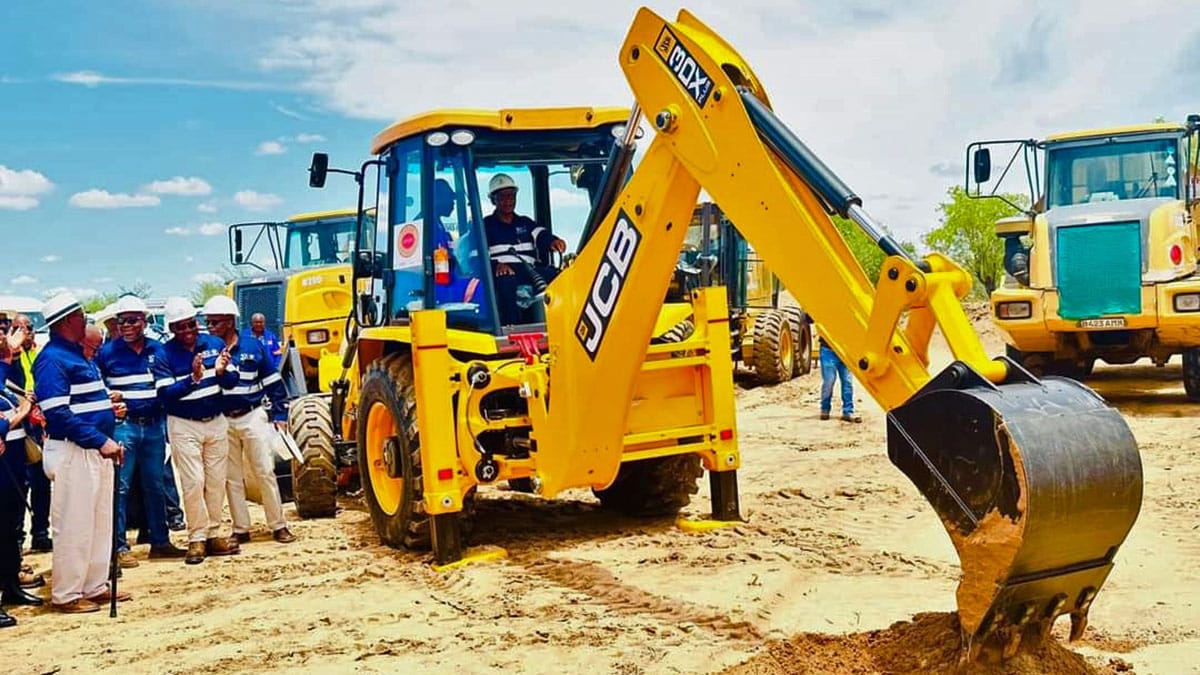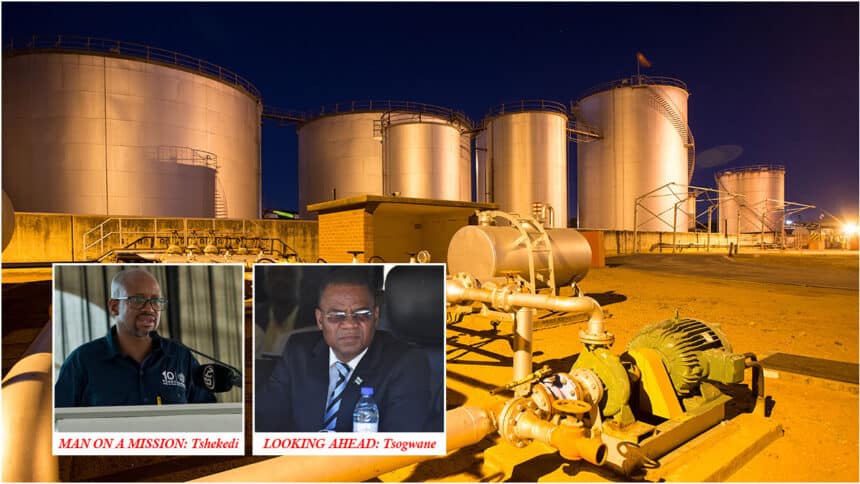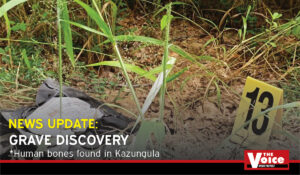Govt invests P1 Billion in Ghanzi Strategic Fuel Reserves
In an effort to bolster Botswana’s fuel resources, government will pump P1 billion into the Ghanzi Strategic Fuel Reserves Depot.
The huge investment is part of a drive to build strategic fuel reserves in key locations across the country.
Currently, the nation is heavily reliant on South Africa for importing its refined petroleum, with Mzansi responsible for more than 70 percent.
The dangers of over-reliance on a single-source were evident for all to see during the Covid-19 pandemic, when the country experienced prolonged fuel supply shortages.
To avoid this happening again, govt are spending big bucks on initiatives like the Ghanzi Fuel Depot. Planned for completion by December next year, the facility will have the capacity to store 60 million litres, which would double BW’s current storage capabilities.
At the moment, the storage capacity for liquid fuels stands at approximately 18 days of national consumption, which is way below the international standard of 90 days.
Similarly, the current ‘commercial buffer stock’ (the amount of fuel at petrol stations) is enough to last for just four days, a number that ideally should be at least two weeks.
Officiating at the depot’s groundbreaking ceremony over the weekend, Vice President, Slumber Tsogwane noted this was the first steps towards an exciting new era.

“The economic risk to our country’s sustainable development is compounded by the acutely limited fuel storage capacity thus holding Botswana hostage. This forms part of creating additional fuel and lubricants storage capacity while simultaneously diversifying the petroleum supply route through using the Namibian port of Walvis Bay where Botswana has secured a dry port facility. Energy security is integral to Botswana’s sustainable economic development; Botswana Oil Limited (BOL) plays a key role in ensuring security of fuel supply and managing government strategic reserves to safeguard against fuel shortages,” said the country’s second-in-command, adding the depot will have a 50-year lifespan.
In a bid to ‘Pusha BW’, as of 1st April next year, BOL will be responsible for 90 percent of all petroleum imports.
According to BOL Chief Executive Officer (CEO), Meshack Tshekedi, the facility is strategically located along the Trans Kalahari Highway to target the petroleum coming in from Namibia, which contributes 10-30 percent of the country’s fuel imports.
Highlighting BOL’s progress in the last decade, Tshekedi said, “Through the support of government, BOL has grown over the years and accomplished significant milestones as it transitioned into an important key driver of economic activity in Botswana. As we celebrate ten years this year, we have come a long a way. We started with just a few litres, to date we trade litres of fuel in hundreds of millions registering billions in turnover. This year we traded 200 million litres and clocked over P3 billion in turnover!”
BOL has already fast-tracked citizen participation in the petroleum value chain locally, securing a Citizen Economic Empowerment Programme with Debswana, which started in August 2022 and runs for five years.
The partnership, valued at approximately P8.4 billion, is set to deliver 600 million litres of diesel to Debswana operations in Jwaneng, Orapa, Letlhakane and Damtshaa. It has already achieved significant milestones of 120 million litres in the first 12 months.
Other projects in the pipeline include the Ikaegeng Coal-to-Liquid scheme and the Tshele Hills Oil depot, which will have 187 million litres capacity. Valued at P3 billion, the storage facility is scheduled for completion in 2027.
In the north, the Francistown depot expansion project which commenced in 2021 is on schedule. Once complete, it will provide an additional 60 million litres, which is deemed sufficient to support economic activity in the region.





















